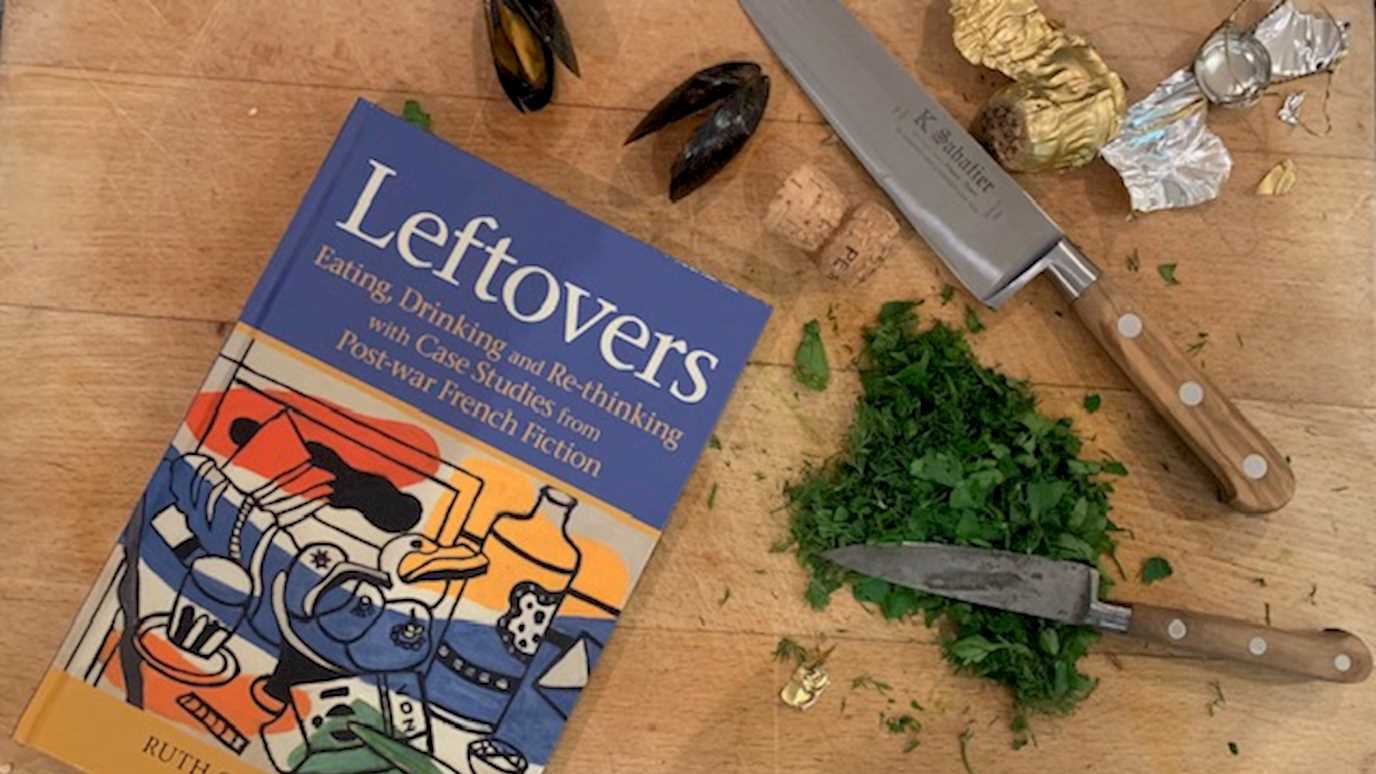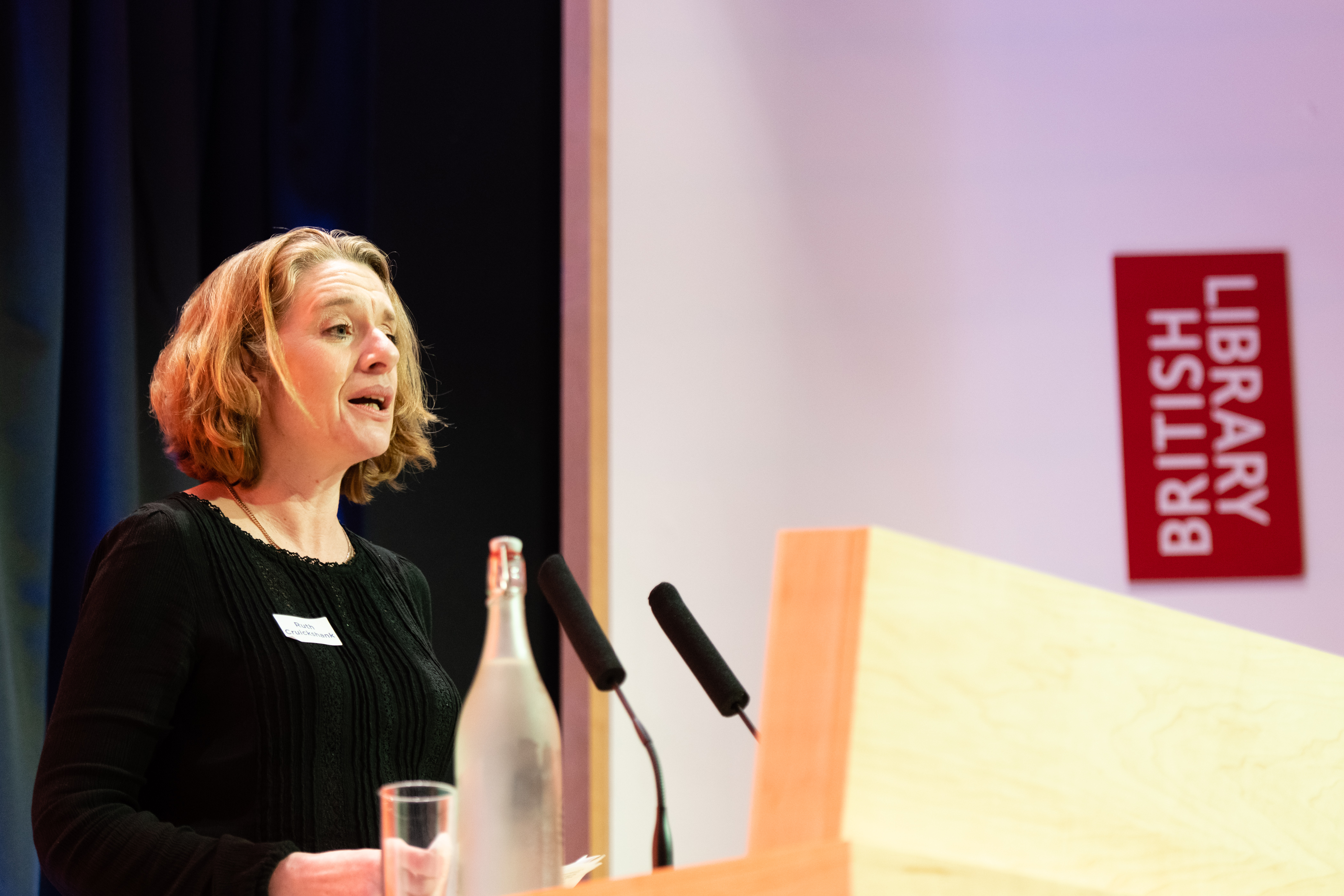I teach on our French, Comparative Literature and Culture, and Liberal Arts degree programmes. My teaching, like my research, is transdisciplinary, both in terms of postgraduate supervision and undergraduate modules.
In first- and second-year Comparative Literature and Culture core modules I explore fiction, art and critical approaches from across the world to bring into question conventional ideas about language, aesthetic trends and dominant discourses of race, gender and class. With first-year Liberal Arts students I use literature, art, advertisements and sociological theories to explore how eating is bound up with identity, ideology, economics, mechanisms of exclusion and constructs of class, gender and race.
I also love helping students develop professional skills in Advanced French Translation classes; introducing second years to the films of the Nouvelle Vague; and in, my final-year option, asking questions about how post-war French novelists, filmmakers and thinkers – and, by extension we, as consumers – may be co-implicated in, yet able to challenge the effects of globalized consumer culture on constructs of gender, sexual and racial identity.
My transdisciplinary research is at the nexus of literary and cultural criticism and food studies, exploring questions of production and consumption: of texts, of food and drink, and of representations of them in fiction, film, thought and art (often French).
My latest monograph, Leftovers: Eating , Drinking and Rethinking with Case Studies from Post-war French Fiction (2019) develops a new flexible critical tool by drawing on a hitherto unexploited convergence of French thinkers whose work uses or is legible though figures of food and drink to identify ‘leftovers’ - unthought-of ideological, historical and psychological meanings - in representations of food and drink. My case studies are major post-war French novels by Darrieussecq, Ernaux, Houellebecq and Robbe-Grillet, but the approach is applicable across literary, comparative, cultural, film, gender and food studies (and I am currently exploring the critical, creative and educational potential of thinking beyond the conventional frames of reference for the overlooked meanings in still life paintings of food). My work on food in literature also converges with activism, with a recent article using a literary text to raise awareness of the unrecognised prevalence of the eating disorder OSFED (Other Specified Feeding and Eating Disorders). As well as an edited volume which explores new understandings of the modern, avant-garde and postmodern writing in French, and a critically-acclaimed monograph on contemporary French fiction, Fin de millénaire French Fiction: The Aesthetics of Crisis (2009), I also publish on food in French film and thought and on contemporary French literature and cinema.
The cross-cultural importance of translation in a globalized world is another core interest, and am the only academic to be invited twice by the Society of Authors to judge the Scott Moncrieff Prize for Translation (2010 and 2018). In 2018, for the first time in the history of the Society of Authors’ translation prizes, we awarded the prize to a graphic novel.
Cross-fertilization through collaborative work is vital to me, so I sit on the Editorial Board of French Cultural Studies; on the steering committee of LINKS (London Intercollegiate Network for Comparative Literature): and I am a member of the Centre for Visual Cultures at Royal Holloway and of the Centre for the Study of Contemporary Women’s Writing. I have also given a wide range of plenary, conference and seminar papers across the US, UK and in France, and have arranged research events on contemporary French women’s writing, the interpretative value of food in literature and creative criticism.
More information about my research is available via PURE.
Twitter: @RuthCruickshank
Expertise
Contemporary French literature
Food studies
Food in still life paintings
Eating disorders, notably OSFED/EDNOS
Post-war French thought
Post-war French film
Advanced Translation (FR: EN)
Gender studies
Media Experience
Interview on Society for Authors Translation Prize 2018, BBC World Service, ‘The Newsroom’ (13/2/19).
ITV, Murder on the Orient Express, Language Advisor (2009).
BBC4, France on a Plate, Consultant (2008)





















